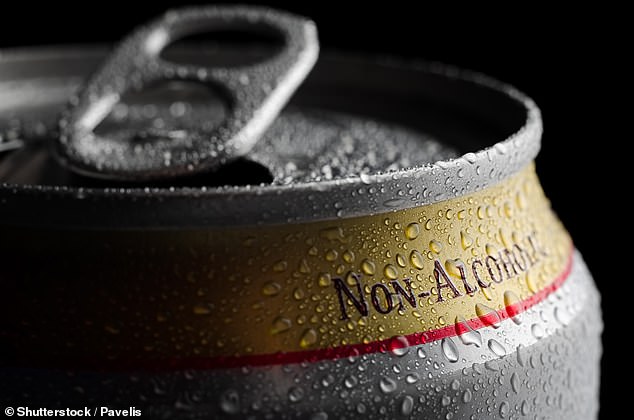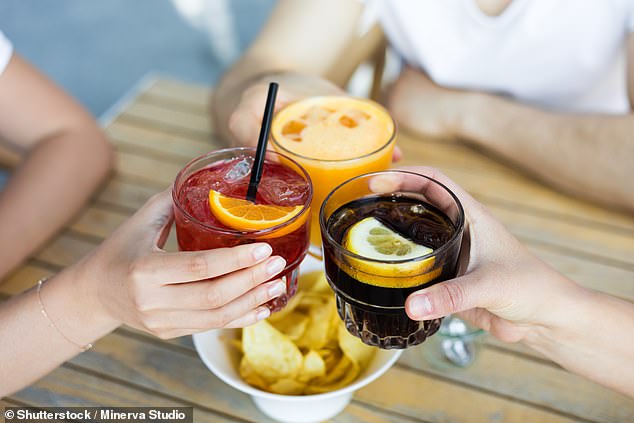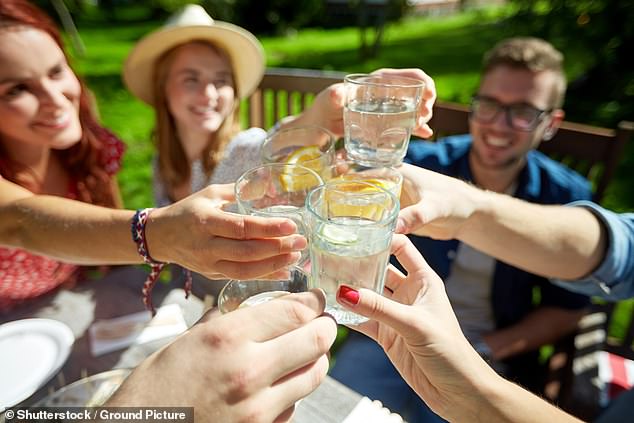One in three drinkers raises a glass to sip “non-alcoholic” versions of their favourite tipple, research suggests.
Non-alcoholic spirits, wines and beers have surged in popularity over the past 12 months as consumers look for healthier drinking options.
Experts say middle-class and younger drinkers are increasingly using them to moderate their alcohol consumption, often alternating between full-alcohol versions.
Overall, 31 percent have consumed teetotal drinks, up from 25 percent last year, according to the charity Drinkaware’s annual survey.
But the biggest jump is among the highest social classes, whose consumption has more than doubled since 2018, rising from 18% to 38%.
One in three drinkers toast “non-alcoholic” versions of their favourite tipple, research suggests (file photo)

Non-alcoholic spirits, wines and beers have gained popularity over the past 12 months as consumers look for healthier drinking options (file photo)
Low-alcohol versions are also increasingly being used to cut down on consumption: 36 percent of drinkers say they use them.
Men have also closed the gap on women: 31 percent and 32 percent respectively now use non-alcoholic substitutes, compared with 15 percent and 21 percent six years ago.
Many said they were preferable to a soft drink or cup of tea “because they look, taste and feel like alcohol”, so they felt more sociable and were less likely to be asked why they didn’t drink.
Millennials are the most likely to give up alcohol: one in five 18- to 34-year-olds is now teetotal, compared with 13 percent of 35- to 54-year-olds and 14 percent of those aged 55 and over.
Karen Tyrell, chief executive of Drinkaware, said: “It’s really encouraging to see the growth in people moderating their drinking, especially among young people.

Experts say middle-class and younger drinkers are increasingly using non-alcoholic alternatives to moderate their drinking, often alternating between full-alcohol versions.
‘The growth of low-alcohol and no-alcohol drinks and their increasing popularity make it much easier for people to moderate their alcohol consumption.
However, last year more than 10,000 people died from alcohol-related illnesses, the highest number on record. Knowing how much you drink can help you avoid putting your health at serious risk.
Taking a clean day remains the most popular form of moderation, rising from 67 per cent in 2023 to 71 per cent in 2024, according to the survey of more than 5,000 UK adults.
But around eight million people are drinking to potentially harmful levels, exceeding the chief medical officer’s recommendations of no more than 14 units a week.
About 28 percent said they had been worried about someone else’s drinking in the past 12 months, up from 26 percent the year before.
Despite this, only 27 per cent of UK adults have been asked to complete an alcohol assessment such as the Drinkaware Drinking Check.

